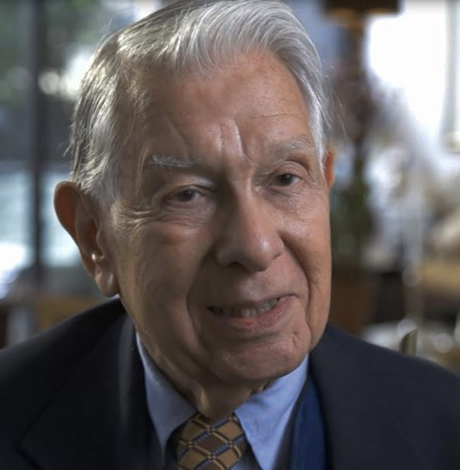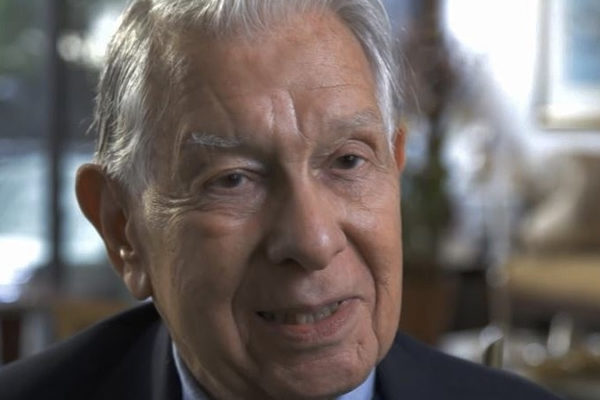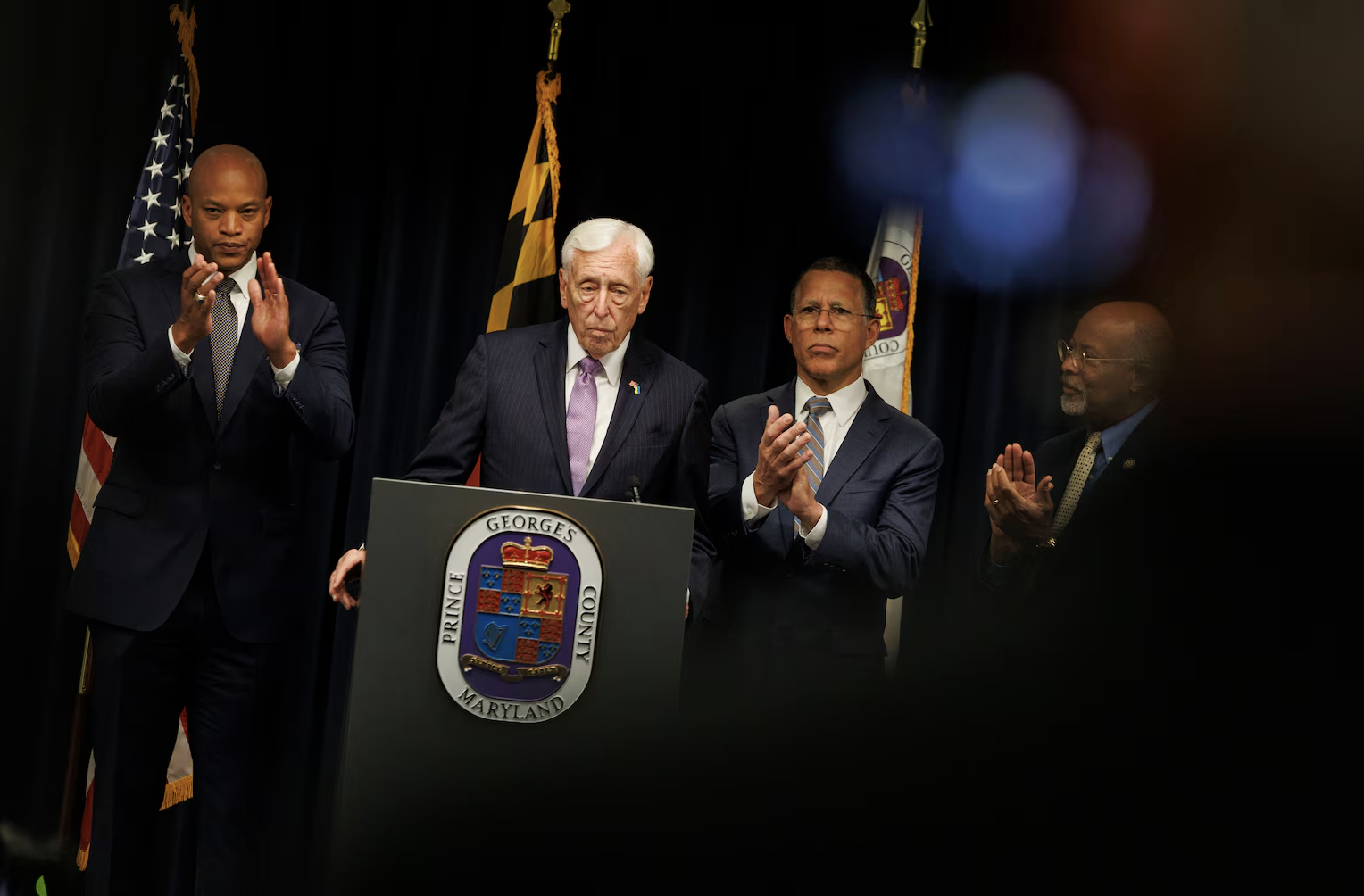Local
Cesar Augusto Caceres, respected D.C. doctor, dies
Honduras native treated patients with HIV at Dupont Circle practice


Cesar Augusto Caceres, MD, peacefully passed away Feb. 9, 2020, at his home in Washington, D.C.
Born April 9, 1927, in Puerto Cortés, Honduras, Dr. Caceres was the only child of Julian R. Caceres, former Ambassador to the United States from Honduras, and Mrs. Mariana C. Caceres. His partner of 48 years, W. Raymond Mize, Jr., MD, pre-deceased Dr. Caceres in September 2004, as did his companion Stanley J. Kuliczkowski in July 2015. Dr. Caceres is survived by his cousins Mrs. Gloria Caceres, Dr. J. Desiree Pineda, Mrs. Carmen Alfaro Morawski and Mrs. Ana Maria Alfaro.
In 1953, Dr. Caceres obtained his medical degrees from Georgetown University. He obtained additional training in internal medicine at Tufts and Boston Universities in Boston, Massachusetts. He received cardiology and research training from George Washington University.
Dr. Caceres worked for the Public Health Service where he won two Superior Service Awards for developing the country’s first functional computer-electrocardiographic interpretive system. Later he joined George Washington University where he was professor of clinical engineering. Dr. Caceres has edited and co-authored nine textbooks dealing with various aspects of technology, medicine, and health care.
In 1970, Dr. Caceres opened his private practice in Dupont Circle integrating computer technology into the day-to-day real world of medical practice. Beginning in the 1980s Dr. Caceres developed for use in his practice The System Integrated Record, S.I.R. By the early 1980s, like other physicians in D.C., Dr. Caceres began seeing patients with HIV and was committed to the care of patients with the goal of improving health and quality of life until his retirement in 2014. In October 1985, in an op-ed article on HIV in the Wall Street Journal and a letter to the editor in the Journal of the American Medical, Dr. Caceres pointed out that the methodology used by the Centers for Disease Control and Prevention to report the causes of HIV transmission understated the national figures of those who had become infected as a result of recreational drug use. As a result of these publications, the CDC changed its methodology for HIV reporting. In his practice, Dr. Caceres authored many unique patient education pieces on HIV, opportunistic infections, and safer sex to better educate his patients.
Dr. Caceres founded the Institute for Technology in Health Care, a non-profit which seeks to support projects designed to identify, investigate, and apply new and existing technologies to the solution of health care problems. Services will be held at St. Matthew’s Cathedral, 1725 Rhode Island Ave., N.W., Washington, D.C., on Saturday, Feb. 29, 2020, at 10:30 a.m. Memorial contributions may be made to the Institute for Technology in Health Care, 1759 Q St., N.W., Washington, D.C., 20009.
Virginia
Gay Va. State Sen. Ebbin resigns for role in Spanberger administration
Veteran lawmaker will step down in February

Alexandria Democrat Adam Ebbin, who has served as an openly gay member of the Virginia Legislature since 2004, announced on Jan. 7 that he is resigning from his seat in the State Senate to take a job in the administration of Gov.-Elect Abigail Spanberger.
Since 2012, Ebbin has been a member of the Virginia Senate for the 39th District representing parts of Alexandria, Arlington, and Fairfax counties. He served in the Virginia House of Delegates representing Alexandria from 2004 to 2012, becoming the state’s first out gay lawmaker.
His announcement says he submitted his resignation from his Senate position effective Feb. 18 to join the Spanberger administration as a senior adviser at the Virginia Cannabis Control Authority.
“I’m grateful to have the benefit of Senator Ebbin’s policy expertise continuing to serve the people of Virginia, and I look forward to working with him to prioritize public safety and public health,” Spanberger said in Ebbin’s announcement statement.
She was referring to the lead role Ebbin has played in the Virginia Legislature’s approval in 2020 of legislation decriminalizing marijuana and the subsequent approval in 2021of a bill legalizing recreational use and possession of marijuana for adults 21 years of age and older. But the Virginia Legislature has yet to pass legislation facilitating the retail sale of marijuana for recreational use and limits sales to purchases at licensed medical marijuana dispensaries.
“I share Governor-elect Spanberger’s goal that adults 21 and over who choose to use cannabis, and those who use it for medical treatment, have access to a well-tested, accurately labeled product, free from contamination,” Ebbin said in his statement. “2026 is the year we will move cannabis sales off the street corner and behind the age-verified counter,” he said.
Maryland
Steny Hoyer, the longest-serving House Democrat, to retire from Congress
Md. congressman served for years in party leadership

By ASSOCIATED PRESS and LISA MASCARO | Rep. Steny Hoyer of Maryland, the longest-serving Democrat in Congress and once a rival to become House speaker, will announce Thursday he is set to retire at the end of his term.
Hoyer, who served for years in party leadership and helped steer Democrats through some of their most significant legislative victories, is set to deliver a House floor speech about his decision, according to a person familiar with the situation and granted anonymity to discuss it.
“Tune in,” Hoyer said on social media. He confirmed his retirement plans in an interview with the Washington Post.
The rest of this article can be found on the Baltimore Banner’s website.
District of Columbia
Kennedy Center renaming triggers backlash
Artists who cancel shows threatened; calls for funding boycott grow

Efforts to rename the Kennedy Center to add President Trump’s name to the D.C. arts institution continue to spark backlash.
A new petition from Qommittee , a national network of drag artists and allies led by survivors of hate crimes, calls on Kennedy Center donors to suspend funding to the center until “artistic independence is restored, and to redirect support to banned or censored artists.”
“While Trump won’t back down, the donors who contribute nearly $100 million annually to the Kennedy Center can afford to take a stand,” the petition reads. “Money talks. When donors fund censorship, they don’t just harm one institution – they tell marginalized communities their stories don’t deserve to be told.”
The petition can be found here.
Meanwhile, a decision by several prominent musicians and jazz performers to cancel their shows at the recently renamed Trump-Kennedy Center in D.C. planned for Christmas Eve and New Year’s Eve has drawn the ire of the Center’s president, Richard Grenell.
Grenell, a gay supporter of President Donald Trump who served as U.S. ambassador to Germany during Trump’s first term as president, was named Kennedy Center president last year by its board of directors that had been appointed by Trump.
Last month the board voted to change the official name of the center from the John F. Kennedy Memorial Center For The Performing Arts to the Donald J. Trump And The John F. Kennedy Memorial Center For The Performing Arts. The revised name has been installed on the outside wall of the center’s building but is not official because any name change would require congressional action.
According to a report by the New York Times, Grenell informed jazz musician Chuck Redd, who cancelled a 2025 Christmas Eve concert that he has hosted at the Kennedy Center for nearly 20 years in response to the name change, that Grenell planned to arrange for the center to file a lawsuit against him for the cancellation.
“Your decision to withdraw at the last moment — explicitly in response to the Center’s recent renaming, which honors President Trump’s extraordinary efforts to save this national treasure — is classic intolerance and very costly to a non-profit arts institution,” the Times quoted Grenell as saying in a letter to Redd.
“This is your official notice that we will seek $1 million in damages from you for this political stunt,” the Times quoted Grenell’s letter as saying.
A spokesperson for the Trump-Kennedy Center did not immediately respond to an inquiry from the Washington Blade asking if the center still planned to file that lawsuit and whether it planned to file suits against some of the other musicians who recently cancelled their performances following the name change.
In a follow-up story published on Dec. 29, the New York Times reported that a prominent jazz ensemble and a New York dance company had canceled performances scheduled to take place on New Year’s Eve at the Kennedy Center.
The Times reported the jazz ensemble called The Cookers did not give a reason for the cancellation in a statement it released, but its drummer, Billy Hart, told the Times the center’s name change “evidently” played a role in the decision to cancel the performance.
Grenell released a statement on Dec. 29 calling these and other performers who cancelled their shows “far left political activists” who he said had been booked by the Kennedy Center’s previous leadership.
“Boycotting the arts to show you support the arts is a form of derangement syndrome,” the Times quoted him as saying in his statement.
-

 District of Columbia5 days ago
District of Columbia5 days agoImperial Court of Washington drag group has ‘dissolved’
-

 Colombia4 days ago
Colombia4 days agoGay Venezuelan man who fled to Colombia uncertain about homeland’s future
-

 Arts & Entertainment4 days ago
Arts & Entertainment4 days ago2026 Most Eligible LGBTQ Singles nominations
-

 District of Columbia4 days ago
District of Columbia4 days agoKennedy Center renaming triggers backlash














